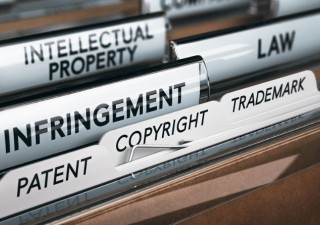Scotch whisky has now been registered in Taiwan, giving consumers and the industry better protection against fakes.
Scotch whisky is a registered certification mark, not a certification trademark, in Taiwan. A geographical indication can be registered as a certification mark or a collective trademark depending on the choice of the owner. “In general, a certification mark is used to identify the designated goods or services that have been certified to conform to a particular set of standards, while a collective trademark is used by a union, association or group members as a source identifier to distinguish their goods or services from those provided by non-members,” says Julia Hung, a partner at Saint Island International Patent and Law Offices in Taipei. “Since Scotch whisky has been registered in Taiwan as a certification mark under Registration No. 1787279, it can afford protection to the concerned geographical indication, and therefore an application is unnecessary.”
Taiwan is the fourth-largest market for Scotch by value with exports worth £75 million (US$97 million) in the first six months of 2016. Consumers are knowledgeable about Scotch and willing to try new brands. It is the thirdlargest overseas market for single malts, with exports worth £41 million (US$53 million) in the first half of the year.
The Scotch Whisky Association, which applied for the trademark, said the existence of the UK Customs’ Spirit Drinks Verification Scheme, which was introduced in 2014, was an important factor in meeting the requirements necessary to secure protection. The scheme ensures every part of the Scotch whisky supply chain is mapped by the industry, registered with the UK government and inspected to check it complies with all the rules on the production of Scotch. The association said the scheme gave Taiwan’s authorities even greater confidence in the robust procedures around Scotch.
“I presume that, during the prosecution of the certification mark application for Scotch Whisky, the association presented to the Taiwan Intellectual Property Office the UK Customs’ Spirit Drinks Verification Scheme. If my presumption is correct, the scheme should be a selfdisciplinary set of rules established by the association,” Hung says. “According to the local practice, TIPO should have only checked to determine whether the scheme contained information regarding the terms and conditions for use of the certification mark and the rules governing such use, the defined territories, as well as the quality, reputation or other characteristics of the designated goods or services that are associated with the geographical environment. In my opinion, the scheme was presented to TIPO to meet the requirements necessary to secure protection.”
The trademark recognizes that Scotch must be made in Scotland from water, cereals and yeast and matured for at least three years. It is of great commercial value to the Scotch whisky industry and gives consumers confidence in the quality and provenance of what they are purchasing. A second trademark has been awarded in Taiwan to protect the Chinese characters that spell out “Scotch whisky” – 蘇格蘭威士忌.
“The Chinese version mark for Scotch whisky can prevent others from using trademarks incorporating the corresponding simplified Chinese characters, so there is no need for the association to file the simplified Chinese version mark,” says Hung.
The association said that while it already works well with authorities in Taiwan, which is an ordered and wellregulated market, the trademark makes it more straightforward to take legal action against those manufacturing or selling fake Scotch in the future.
“In Taiwan, if geographical indications have been registered as certification marks, it is easier for the owners to enforce and prevent others from using similar certification marks or trademarks according to the trademark law. Those who infringe upon the registered certification marks are held both civilly and criminally liable,” Hung says. “Moreover, the association can provide the Customs House with the white lists of those who are entitled to use the Scotch whisky certification mark to prevent counterfeits from being imported into Taiwan. The Association can also conduct a survey in the local market. Should there be any fakes, it can report to the relevant authorities.”
Taiwan has for many years been a major market for Scotch whisky, in particular single malts. The trademarks for Scotch whisky mean that consumers can have even greater confidence in the quality of what they are buying. It will also give a further boost to Scotch whisky producers exporting to Taiwan, said Lindesay Low, senior legal counsel at the Scotch Whisky Association in Edinburgh. “We would like to thank the authorities in Taiwan who were of great assistance in working with us on the successful outcome of our trademark application, as were the UK government,” Low says.







